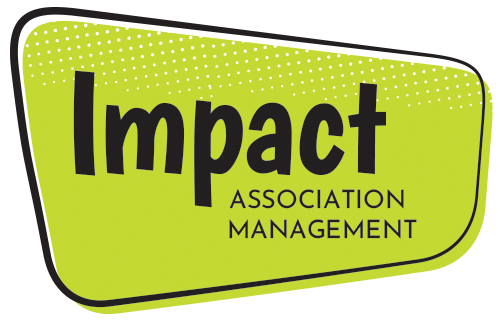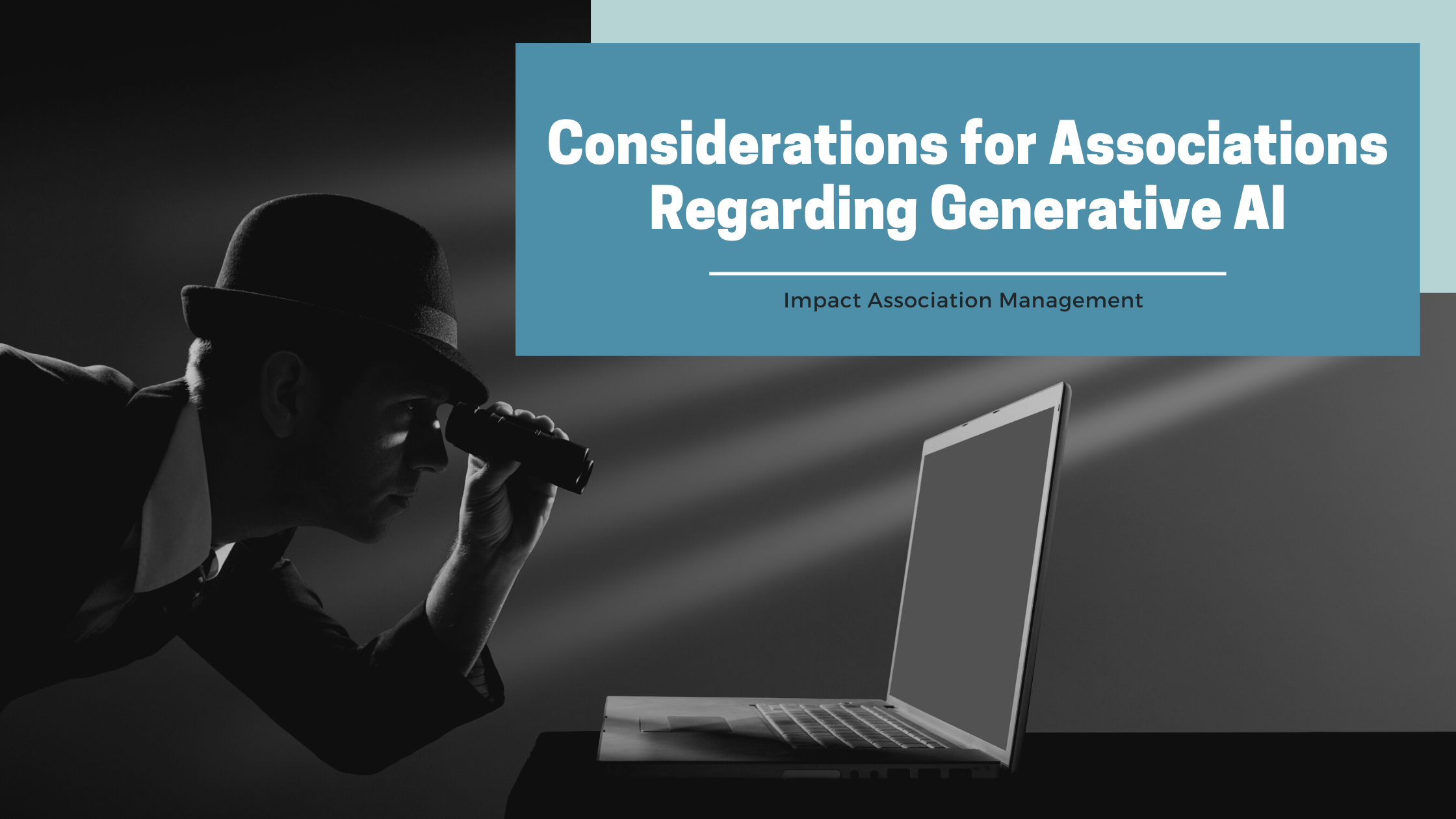***This article was created using content manually added through OpenAI and edited for accuracy.*** Research and editing completed by Impact Operations Manager and Data Specialist, Alyssa Merkle.
Artificial Intelligence (AI) has become an integral part of many industries, offering innovative solutions and transformative opportunities. However, when it comes to generative AI, associations need to approach this technology with caution. While there are numerous opportunities to leverage AI for daily tasks, content creation, and guidance, there are also risks and legal considerations that must be addressed to mitigate potential pitfalls. In this blog post, we will review the considerations surrounding generative AI, including opportunities, risks, and legal implications.
4 Opportunities for Artificial Intelligence:
1. Great Starting Point with Incomplete Data
Generative AI can serve as a valuable starting point for various tasks, even when complete data is unavailable. It can provide assistance by offering intelligent suggestions, recommendations, or potential solutions based on limited information.
2. Assistance with Daily Tasks and Questions
Generative AI can be a valuable assistant, helping with routine tasks, answering common questions, and providing quick access to relevant information. For example, it can streamline administrative processes, manage calendars, and respond to inquiries.
3. Summarizing Human-Created Articles
AI-powered summarization tools can generate concise summaries of articles, enhancing accessibility and allowing content to be shared in a more digestible format. Organizations can specify the desired length, reading level, target audience, and accessibility requirements to cater to their specific needs.
4. Embracing New Technology
AI is rapidly evolving and becoming increasingly prevalent. It is essential for associations to embrace this technology as it develops, staying informed about advancements and exploring how AI can enhance their operations and service offerings.
4 Risks of Artificial Intelligence:
1. Flooding the Industry with Fake Data
One of the risks associated with generative AI is the potential for flooding the industry with fake data. This can pollute the literature with inaccurate or misleading scientific information, leading to significant repercussions for credibility and trust.
2. Licensing Concerns
There is a need to address licensing concerns related to citing AI-generated content. Organizations must navigate the complexities of attributing authorship and ensuring proper citation practices for content generated by AI systems.
3. AI Auditors Discrediting AI-Generated Content
To maintain credibility, organizations should anticipate the possibility of AI auditors discrediting AI-generated content as unreliable or untrustworthy sources. Implementing measures to ensure transparency and accuracy in AI-generated content can help alleviate such concerns.
4. Risk of Misinformation
Generative AI systems, although impressive, are not infallible. They may produce surface-level information that is incomplete, inaccurate, or biased. Organizations must be aware of this risk and take steps to verify and validate AI-generated content before relying on it.
5 Legal Risks and Mitigation:
1. Copyright and Liability
The legal landscape surrounding AI, copyright, and liability is still evolving. Associations should consider the implications of copyright laws on AI-generated content. In the United States, for instance, AI-generated content may not be eligible for copyright protection, as the law currently requires human authorship.
2. Discrimination
Associations must ensure that their AI systems do not discriminate based on legally protected characteristics such as race, ethnicity, gender, age, or disability. It is crucial to identify and address any biases that may exist within AI algorithms to prevent inadvertent discrimination.
3. Tort Liability
If an AI system produces inaccurate, negligent, or biased results that harm members or end-users, the association could potentially be held liable for resulting damages. Adequate insurance coverage, including errors and omissions (E&O) liability, should be considered to mitigate potential risks.
4. Data Privacy and Security
Associations must prioritize data privacy and security when using generative AI. Sensitive information should not be inserted into AI systems, and precautions should be taken to ensure compliance with privacy regulations. It is important to remember that OpenAI and similar platforms are not private, and data shared with them may not be fully secure.
5. International Considerations
As AI laws continue to evolve globally, associations should be mindful of international regulations. For example, the European Union is actively working on AI laws, which may affect how organizations interact with international clients. Staying updated on international legal requirements is essential for responsible AI implementation.
As technology continues to evolve, Impact’s team of association professionals help organizations find and integrate new tools and systems to improve efficiency in a meaningful way. Reach out to learn more ways our team can help your association.

